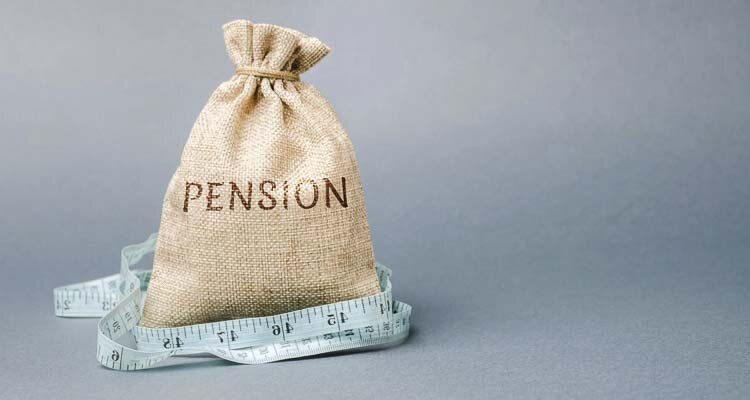
Actuarial analysts have previously warned that overfunded pensions can cause problems later on if it later becomes underfunded, as it creates a new financial liability for the state operating budget
Tj Martinell
The Center Square Washington
Washington state’s public pension system is expected to be fully funded by 2027, according to the Office of the State Actuary. However, ongoing contributions will still be required for most of the 11 pension plans.
Currently, Washington taxpayers spend almost $200 million every two years on that system. At the moment, there are only two pension plans with unfunded liabilities, PERS 1 and TRS 1, which were closed to new members in the 1970s. However, the issue moving forward will be how to respond to overfunded plans, as some are expected to exceed 100% in the next five years.
The pension plan unfunded liabilities are based on actuarial calculation that includes the economic forecast and investment rate of return for the pension money in the Commingled Trust Fund, which is managed by the State Investment Board. The current assumed rate of return on investments is 7%, and an August report by the Actuary’s Office recommends keeping it. The Actuary’s Office looked at separate rates for the open and closed pension plans, but ultimately decided against recommending it.
The plan also calls for maintaining an assumed 2.75% annual inflation for all plans. Those rates are determined by the Select Committee on Pension Policy.
The system’s solvency has improved over the past seven years, when it dipped below 84% in 2016. The total funding for all plans now sits just above 95%.
This session, state lawmakers enacted several bills related to the public pension system. One of them was Senate Bill 5294, which set up a new, lower unfunded actuarial accrued liability rates for TRS 1 and PRS 1 members. The rates are to be paid until the plans are fully solvent.
However, the Actuary’s Office warned at a Tuesday meeting of the Select Committee on Pension Policy that lowering the contribution rates “improves short-term affordability but solvency could worsen.” The presentation also warned that the “UAAL [is] more likely to re-emerge as a result.”
Actuarial analysts have previously warned that overfunded pensions can cause problems later on if it later becomes underfunded, as it creates a new financial liability for the state operating budget. That liability can also worsen if the Legislature decides to increase pension benefits in response to the overfunded status.
The Legislature also enacted Senate Bill 5350, which provides a one-time 3% benefit increase to the PERS plan 1 and TRS plan 1 retirees up to $110 per month. The policy only applies to those who retired on or before July 1, 2022. The bill also calls on the Select Committee on Pension Policy to study and recommend ongoing cost of living adjustments for plan 1 retirees.
This report was first published by The Center Square Washington.
Also read:
- WA governor pressed to veto $1.8B piece of Democrats’ tax billGrocers and restaurateurs are urging Gov. Ferguson to veto a surcharge in HB 2081 that they say will raise food prices statewide.
- CCSO makes arrest in attempted kidnapping investigationA 31-year-old Vancouver man has been arrested in connection with an attempted kidnapping involving a teenage girl near NE 149th Street.
- Changing roles: Brian Witherspoon accepts position as head coach of Camas girls basketballBrian Witherspoon has been hired to lead the Camas girls basketball program after serving as interim boys coach last season.
- Vehicle crashes into Vancouver Fire Station 6 during emergency responseA vehicle crashed into Vancouver Fire Station 6 late Tuesday night while crews were out on an emergency call.
- Letter: ‘It’s said sarcasm is the lowest form of wit’Amboy resident Thomas Schenk criticizes Olympia’s use of “emergency clauses” and other legislative tactics that limit public participation.
- Letter: ‘We’re going to give them some money and a plane ticket, and then we’re going to work with them’Camas resident Anna Miller supports a new structured self-deportation policy, calling it a balanced approach to immigration and economic needs.
- Pro-Palestinian protesters occupy UW building, 30 arrestedAbout 30 protesters were arrested at the University of Washington after occupying a building and demanding the school cut ties with Boeing.











